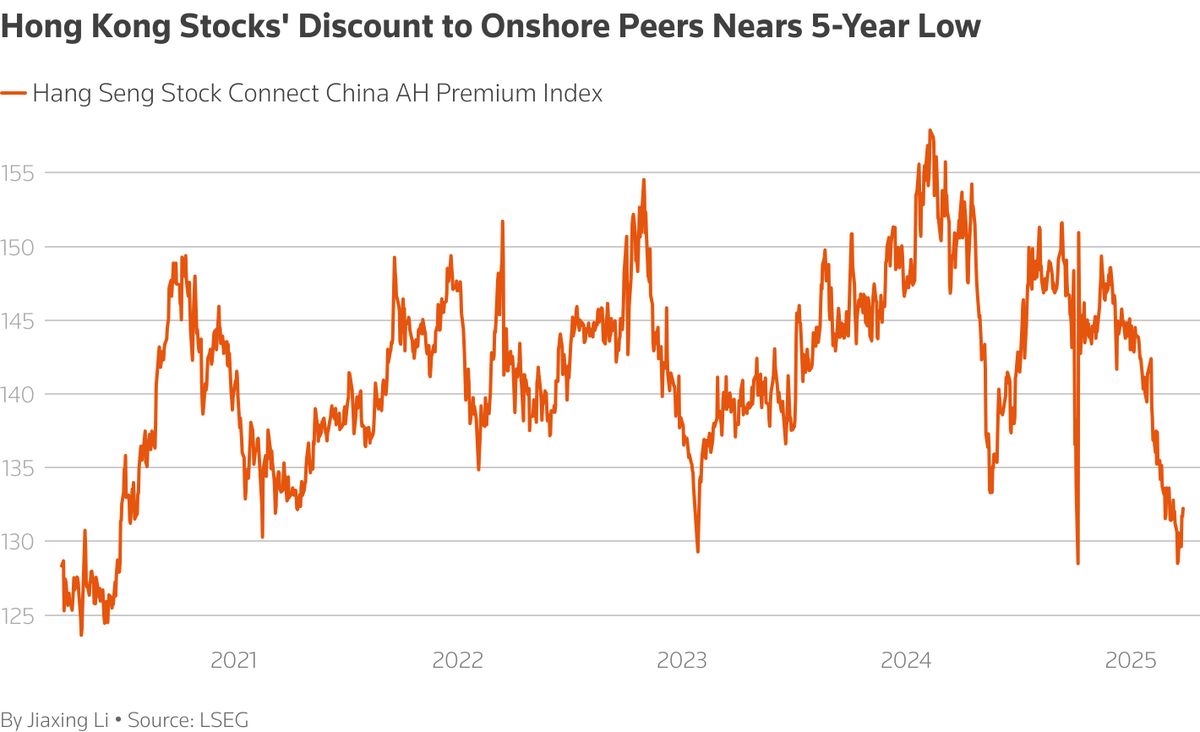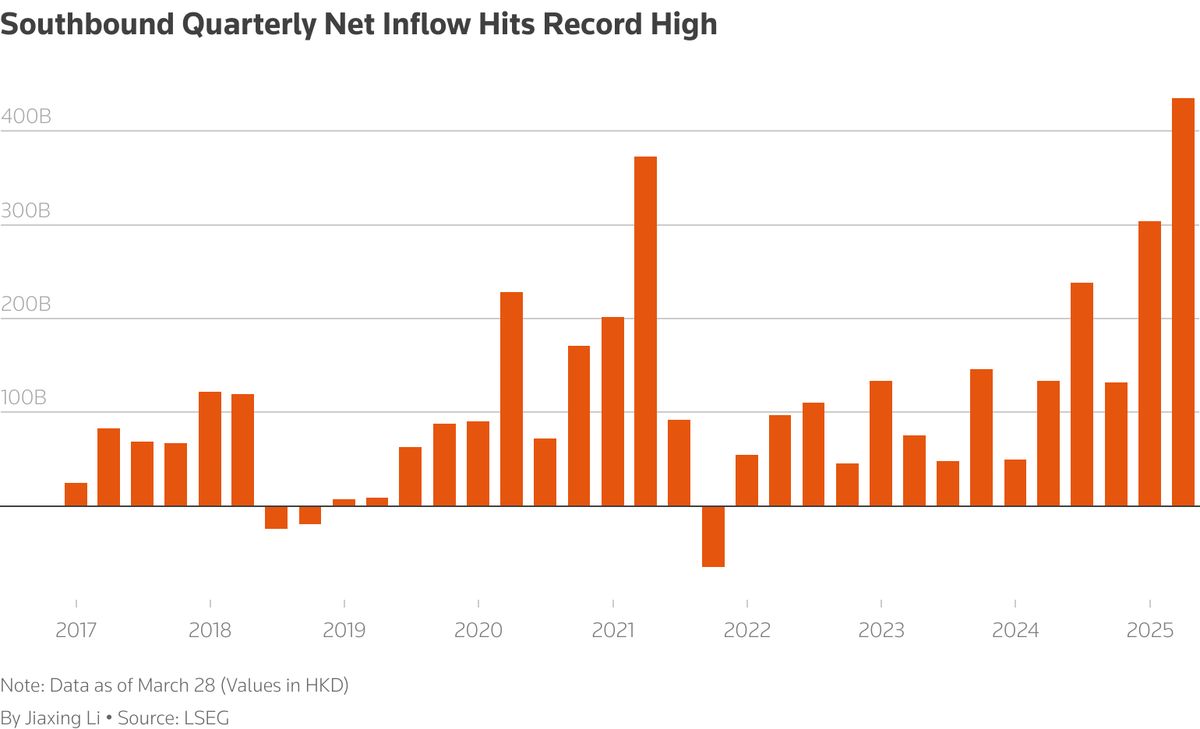
Net inflows from China onshore funds into Hong Kong's equity market through the Stock Connect scheme were over HK$435 billion (RM247.8 billion) so far this year, the highest quarterly purchases since the scheme was launched in 2014 and above the previous record of HK$373 billion in 1Q of 2021.
HONG KONG/SHANGHAI (March 28): Mainland Chinese investors poured into Hong Kong's stock market with a record buying spree in the first quarter (1Q), chasing an artificial intelligence (AI) frenzy and seeking portfolio diversification.
Net inflows from onshore funds into Hong Kong's equity market through the Stock Connect scheme were over HK$435 billion (RM247.8 billion) so far this year, the highest quarterly purchases since the scheme was launched in 2014 and above the previous record of HK$373 billion in 1Q of 2021.
Technology giants were among mainland investors' most loved names, driven by a rush into AI H-shares spurred by DeepSeek's breakthroughs and Chinese President Xi Jinping's meeting with industry leaders.
Alibaba Group has surged over 60% year-to-date while Tencent Holdings has rallied over 22%, helping push the Hang Seng Tech Index to among the world's top-performing benchmarks this quarter.
The southbound buying spree has been further fuelled by blockbuster initial public offerings (IPOs) such as Mixue, which have attracted significant interest during a drought of mainland-listed A-share offerings.
"A-shares don't really have any companies that make you go 'wow' right now," said Jack Zhou, a Shanghai-based retail investor, referring to mainland-listed stocks.
"Why should I invest in the old, weak, and struggling ones on the A-shares market instead of buying the good companies in Hong Kong?" he added.
The shift has left mainland-listed shares struggling to keep up with their offshore peers amid a weak economic outlook and sluggish domestic consumption. China's benchmark CSI 300 Index eked out barely 2.5% gains so far this year, whereas the Hang Seng Index has soared nearly 20%.
"Compared with their global peers, mainland Chinese investors have a much lower weight of foreign stocks in their portfolios," Patrick Pan, China equity strategist at Daiwa Capital Markets Hong Kong, said in a note.
That has accelerated their outbound investments mainly via the southbound channel and the Qualified Domestic Institutional Investor (QDII) funds, he said.
Eddie Yue, CEO of Hong Kong Monetary Authority, said earlier this week that mainland capital accounts for 20% to 30% of Hong Kong's stock market turnover through the stock connect. He said the city is exploring ways to further relax rules on a wealth connect program to facilitate cross-border flows.
To be sure, the H-share rally has already shown some signs of exhaustion, with recent market pullbacks suggesting some profit-taking. Meanwhile, the valuation gap between dual-listed shares in mainland China and Hong Kong has narrowed to near the lowest level since 2020, which could lead to some rotation back home.
Still the current rally in H-shares appears to be driven by genuine investor confidence rather than policy-driven short-term trading, which could continue if fundamentals follow through, analysts said.
"In the past, when you have policy stimulus, it's always the A-shares that rallied because of national team buying," said Mark Davids, portfolio manager and co-Head of Asia Pacific Regional Equities at JPMorgan Asset Management in Hong Kong.
"The fact that it's H-shares rallying now indicates real money, real investors, and genuine confidence returning. If this carries on, there's potential for international money, which has been absent from Chinese markets for years, to come back."
Uploaded by Felyx Teoh
- Xi's showdown with Li Ka-shing threatens China’s pro-business push
- Tan Kean Soon steps down as T7 Global executive deputy chairman, board says no operational impact
- Company auditor loses RM1.29m to investment scam
- Perak emerges as Malaysia's No 1 sweet corn producer
- Huawei posts surprise loss after aggressive tech research


